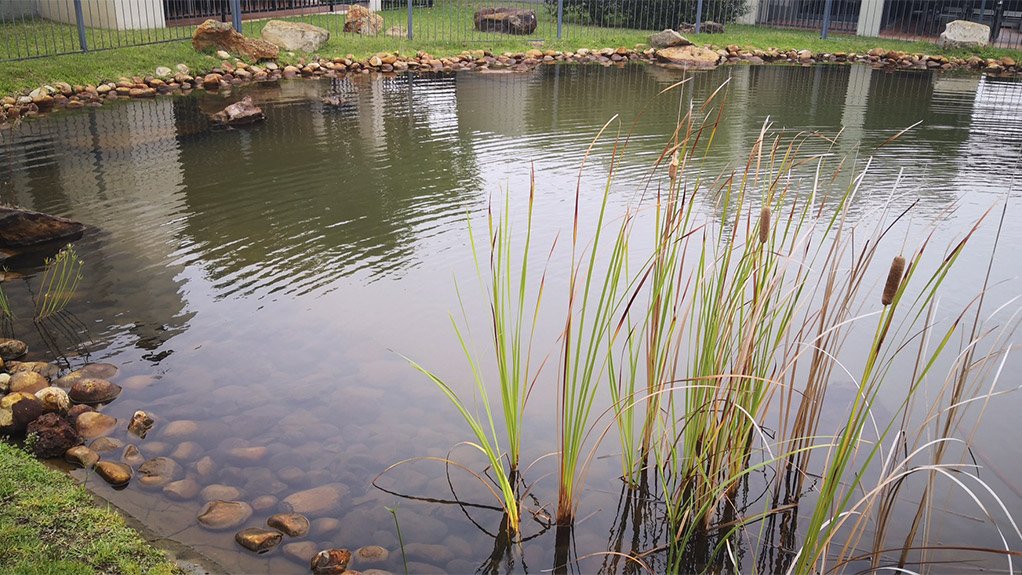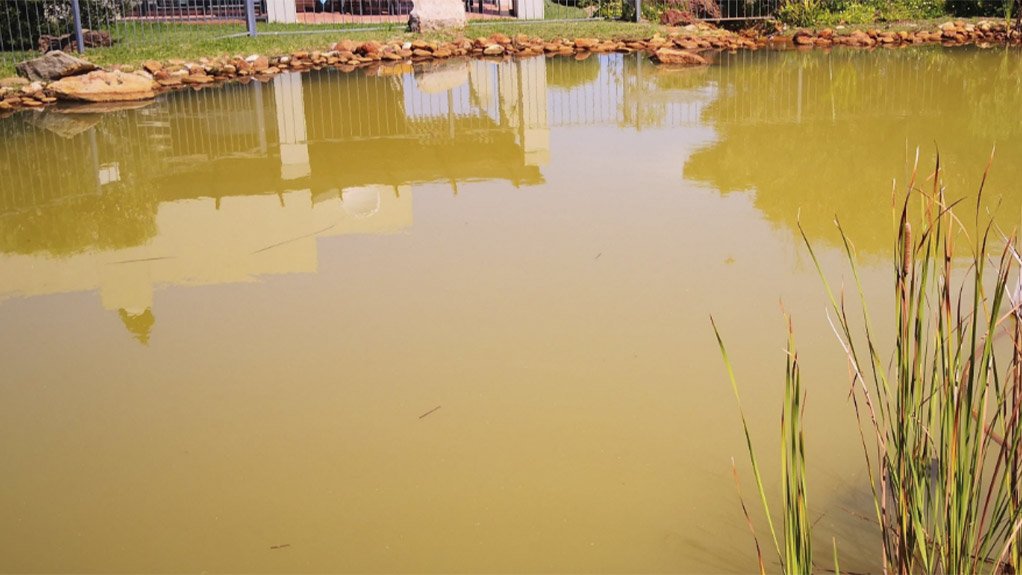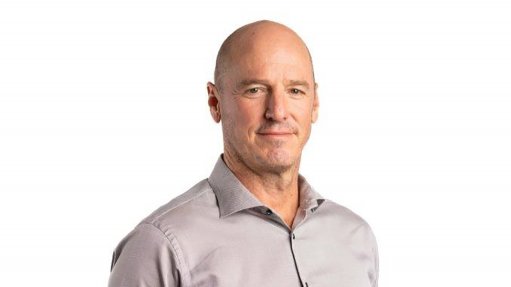Brown Walls A Relic Of The Past With Green Solution
This article has been supplied as a media statement and is not written by Creamer Media. It may be available only for a limited time on this website.
Home and garden walls stained brown from borehole water are a common sight throughout much of rural South Africa. Today, the sustainable living trend has seen many urban homeowners sinking boreholes in an effort to live off the grid.
Unfortunately, while earth-coloured walls may add to the charm of the countryside, there’s no living with walls the colour of mud in suburbia. “South African soil is generally rich in iron and manganese while many of the trees we value so much are rich in tannins which contribute additional deep hues to the browning effect of minerals,” says Adrian Tromp of Earthsmart Technologies. Tannins and minerals also turn pool water unpleasant shades.
Mr Tromp’s firm specialises in using a range of ozone-based and other chemical-free green technologies to remove iron, manganese and other contaminants from borehole water rendering it as clear and safe to drink as water from an untouched mountain spring.
“Sinking wells, drilling boreholes and catching rainwater are all the way to go for any earth-conscious homeowner seeking the security of a reliable water supply,” Mr Tromp says. “However, to do things safely and properly, home-generated water simply must be treated,” he adds. For Earthsmart Technologies, ozone is the preferred disinfectant.
Borehole water contaminants can cause serious health problems like iron overload which can lead to hemochromatosis that, in turn, can lead to liver, heart and pancreatic damage and diabetes. In addition, iron often carries bacteria that feed off the iron to survive. These organisms can be harmful when ingested. Symptoms like fatigue, weight loss and painful joints could all point to a need for the homeowner to check iron levels in borehole water.
“Disinfection is key but chlorine doesn’t have to be the go-to chemical for home borehole and harvested water disinfection,” Mr Tromp explains.
Ozone is a naturally-occurring disinfectant well-suited for water treatment; approved as far back as 1999 as a disinfectant for Food Preparation by the American Food & Drug Administration and that country's Environmental Protection Agency. Ozone's strength is that it reverts back to oxygen rapidly after it has disinfected water.
Ozone is 2.5 times stronger than chlorine and works 3 000 times faster because it kills bacteria on contact. Chlorine's only real advantage, and it's one that appeals to pool owners, is that it ensures protection long after it is added to water. In drinking water, the consumer doesn’t want to taste the residual chlorine which gives the long term protection.
Ozone Aquazone generators installed by Earthsmart Technologies oxidise iron, manganese, tannins, sulphides and other contaminants common in South African water. After oxidation, there will be matter suspended in the water which is then filtered or settled out. Earthsmart Technologies’ water treatment processes use specialised glass media, iron removal media and carbon to filter this oxidised water.
Ian Wright, the manufacturer and supplier of Aquazone generators explains that home borehole users can now benefit from the same advanced ozone disinfection technologies used in large industrial and commercial water treatment plants worldwide. South African examples of treatment plants using ozone to purify water include the Roodeplaat, Midvaal, Temba, Rietvlei and Vaalkops Municipal Water Treatment providers. “Ozone oxidises iron and manganese while disinfecting and removing other pollutants in water such as cryptosporidium - dangerous organic matter that chlorine cannot remove,” says Mr Wright.
“Ozone has been used for decades as a well-documented safe and natural purification process for water and more recently in over 300 US municipal water treatment plants. This same technology is now available to homeowners locally and that’s pretty exciting for sustainable living,” concludes Mr Wright.
Comments
Press Office
Announcements
What's On
Subscribe to improve your user experience...
Option 1 (equivalent of R125 a month):
Receive a weekly copy of Creamer Media's Engineering News & Mining Weekly magazine
(print copy for those in South Africa and e-magazine for those outside of South Africa)
Receive daily email newsletters
Access to full search results
Access archive of magazine back copies
Access to Projects in Progress
Access to ONE Research Report of your choice in PDF format
Option 2 (equivalent of R375 a month):
All benefits from Option 1
PLUS
Access to Creamer Media's Research Channel Africa for ALL Research Reports, in PDF format, on various industrial and mining sectors
including Electricity; Water; Energy Transition; Hydrogen; Roads, Rail and Ports; Coal; Gold; Platinum; Battery Metals; etc.
Already a subscriber?
Forgotten your password?
Receive weekly copy of Creamer Media's Engineering News & Mining Weekly magazine (print copy for those in South Africa and e-magazine for those outside of South Africa)
➕
Recieve daily email newsletters
➕
Access to full search results
➕
Access archive of magazine back copies
➕
Access to Projects in Progress
➕
Access to ONE Research Report of your choice in PDF format
RESEARCH CHANNEL AFRICA
R4500 (equivalent of R375 a month)
SUBSCRIBEAll benefits from Option 1
➕
Access to Creamer Media's Research Channel Africa for ALL Research Reports on various industrial and mining sectors, in PDF format, including on:
Electricity
➕
Water
➕
Energy Transition
➕
Hydrogen
➕
Roads, Rail and Ports
➕
Coal
➕
Gold
➕
Platinum
➕
Battery Metals
➕
etc.
Receive all benefits from Option 1 or Option 2 delivered to numerous people at your company
➕
Multiple User names and Passwords for simultaneous log-ins
➕
Intranet integration access to all in your organisation























